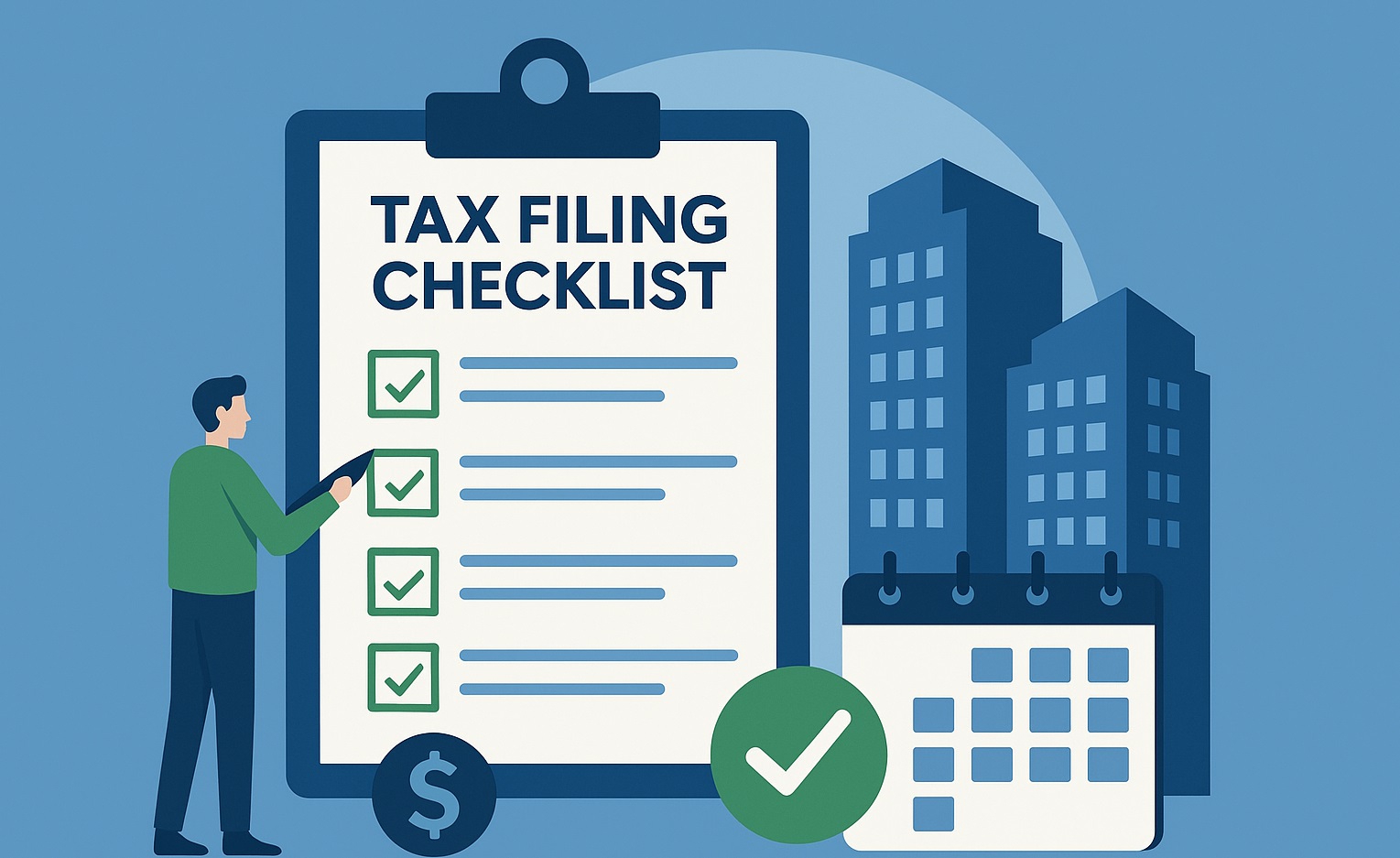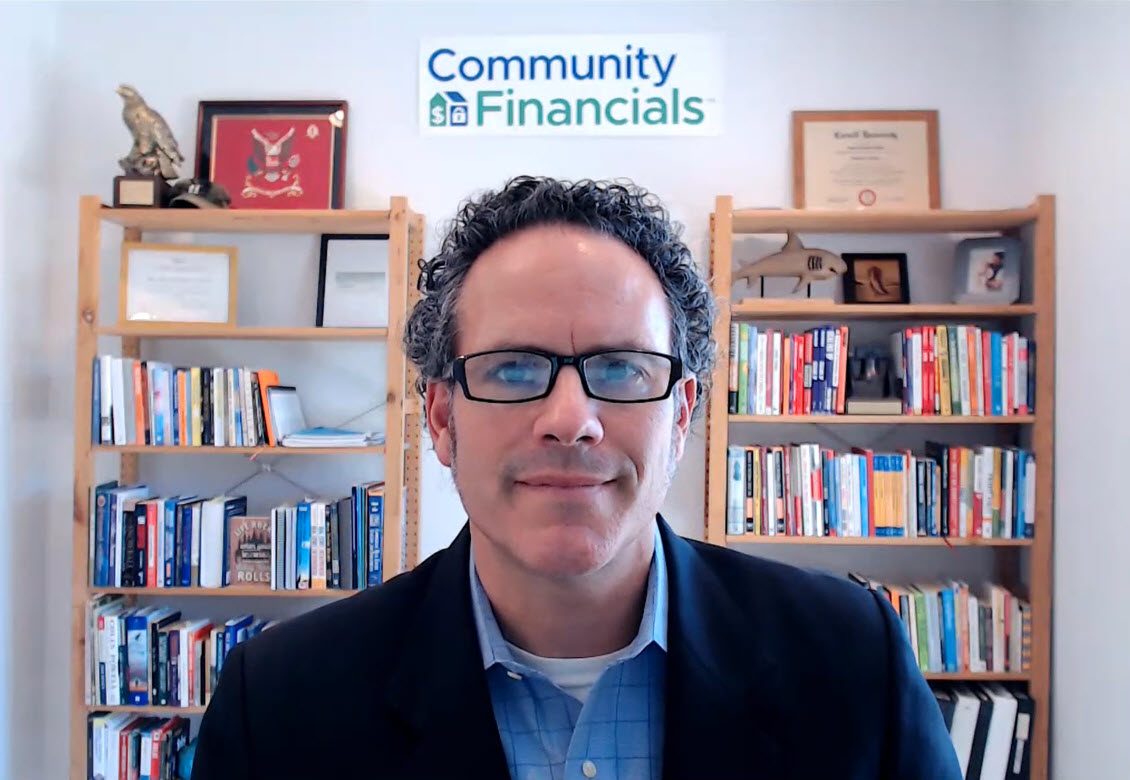Your Condo Association Tax Filing Checklist for a Stress-Free Year-End
Tax season might not be top of mind for most condo boards, but when it comes to condo association tax filing, early preparation makes all the difference. Every association – regardless of size or income level – is required to file a federal tax return each year, and waiting until the last minute can lead to missing documents, filing errors, or unnecessary stress.
The good news? With a clear checklist and a bit of planning, your board can approach tax season confidently, stay compliant, and avoid the year-end scramble. Here’s what to check off now to ensure a smoother filing process later.
Why Filing Matters -Even If Your Association Is Small Even if your condo association isn’t collecting much income – or any at all – filing a tax return each year is still a federal requirement. The IRS treats condo associations as corporations, and skipping a return (even once) can lead to unnecessary scrutiny or late penalties down the line. Beyond compliance, annual filing is a smart governance practice. It keeps your financial records complete, satisfies lender and insurance requirements, and gives your board better visibility into the association’s financial health year over year. Now that you know why filing matters, let’s walk through what your board should be doing to stay ahead. |
Keep Monthly Financials Up to Date
The foundation of a smooth tax season is consistent, well-maintained financial records. If your monthly financials are accurate, categorized correctly, and fully reconciled by year-end, your CPA will have everything they need to file efficiently and without delays.
Boards should ensure that:
- Bank and credit card accounts are reconciled monthly
- Income is clearly separated (e.g., dues vs. interest vs. fines vs. special assessments vs. insurance proceeds)
- Vendor payments and reimbursements are fully recorded
- Any unusual activity is flagged or noted in the records
When you work with a financial management provider like Community Financials, this groundwork is handled throughout the year. By the time tax season arrives, your year-end reports are clean, complete, and ready to hand off to your CPA.
Confirm Your CPA Is Engaged Early
Don’t wait until spring to start thinking about tax prep. Your board should identify, engage, and communicate with your CPA early in the new year—or even before year-end. This gives your preparer time to plan, ask questions, and avoid last-minute pressure.
Make sure to:
- Confirm who will be filing the return
- Sign the CPA’s engagement letter
- Share contact info for a designated board member or property manager
- Provide a copy of last year’s return for reference
Engaging your CPA early keeps everyone on the same page and helps ensure timely filing.
Deliver Year-End Financial Reports Promptly
Once your association’s books are closed for the year, you’ll receive a final set of year-end financial reports. These include everything your CPA needs to complete the return – so don’t sit on them.
Send the full package to your CPA as soon as it’s available, including:
- Year-end balance sheet and income statement
- General ledger or transaction report
- Any board-approved budgets or documentation for assessments, insurance claims, or special funds
If you’re working with Community Financials, these reports are provided automatically at year-end and are formatted with your tax preparer in mind.
Clarify Which Tax Form Will Be Used
Most condo associations file under Form 1120-H, which is designed specifically for homeowners’ associations and offers favorable treatment for dues and assessments. However, in some cases, your CPA may recommend using Form 1120 instead – especially if it results in a lower tax liability.
This decision should be made by your CPA, not the board. But it’s important to:
- Ask which form they plan to file
- Understand why they’re choosing one over the other
- Make sure they have all documentation to support that choice
Getting clarity on the filing strategy ensures the return is accurate and defensible.
Set Up or Verify EFTPS Access
If your association owes taxes—or might in the future—it’s smart to have an EFTPS (Electronic Federal Tax Payment System) account ready to go. This secure IRS system allows you to make federal payments online, avoiding mailing delays or missed deadlines.
Check that:
- The treasurer or property manager has EFTPS login credentials
- The account is linked to the association’s EIN and bank account
- Payment information is securely stored and accessible to authorized users
If you don’t yet have an account, you can register at eftps.gov. Getting this set up early can save your board a scramble later.
Mark Important Deadlines on Your Calendar
Filing deadlines sneak up fast – especially for busy boards juggling multiple responsibilities. Most condo associations operate on a calendar year and must file their federal tax return by April 15. If your association uses a fiscal year, the deadline is the 15th day of the fourth month after your fiscal year ends.
To stay ahead:
- Add filing deadlines to your association’s shared calendar
- Set reminders in January (CPA engagement), March (report delivery), and early April (final check-in)
- Avoid relying on extensions – Form 7004 can push back your filing date, but it doesn’t extend your payment deadline
A few calendar reminders can prevent last-minute stress and ensure nothing gets missed.
Keep Calm and File On
Tax filing doesn’t have to be overwhelming for your condo association. With clean financials, early coordination, and a clear checklist in hand, your board can approach the process with confidence and ease. While Community Financials doesn’t file tax returns, we make tax season simpler by delivering accurate monthly financials and detailed year-end reports your CPA can rely on. And if they have questions? We’re here to help.
Reach out today to learn how we can help your association stay organized, compliant, and tax-ready – year after year.


